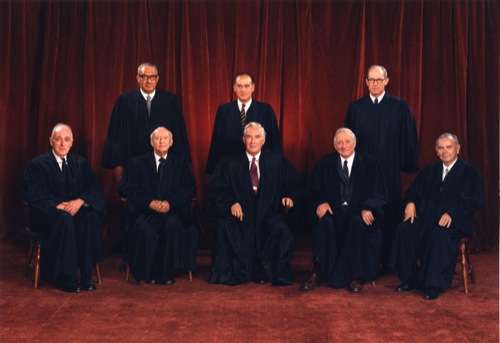
In this lesson, you will learn the following things:
- The correct pronunciation of either and neither
- The meaning of either and neither
- The difference between either and neither
- The grammar rules of either and neither
Pronunciation of either
There are 2 ways to pronounce “either“:
Pronunciation 1: /ˈaɪ.ðər/ (most common in the UK)
Pronunciation 2: /ˈiː.ðər/ (most common in the USA)
Pronunciation of neither
There are also 2 ways to pronounce “neither“:
Pronunciation 1: /ˈnaɪ.ðər/ (most common in the UK)
Pronunciation 2: /ˈniː.ðər/ (most common in the USA)
either + singular countable noun
Meaning: One or the other when there are two things.

Clare: What flavour ice-cream do you want? Chocolate or vanilla?
John: Either flavour is fine. Thanks.
Explanation: This means that John doesn’t have a preference. Chocolate flavour is fine. Vanilla is also fine. Notice that the verb “is” is in the singular form. That is because the noun “flavour” is also in the singular form.
either without a noun
Sometimes, we use “either” as a pronoun in a short answer.
Meaning: One or the other when there are two things.

Clare: What flavour ice-cream do you want? Chocolate or vanilla?
John: I don’t mind. Either!
Explanation: There is no noun after “either“. We are using “either” as a pronoun. The meaning is the same as the previous example. John has no preference between the available flavours.
either of + plural object pronoun
After “either of“, we can have a plural object pronoun (us, you, them)
Meaning: One or the other when there are two things.

David: Do you support Manchester United or Manchester City?
Mark: I don’t support either of them! I support Dortmund!
Explanation: Mark doesn’t support Manchester United and he doesn’t support Manchester City.
either of + determiner
We use “either of” before a determiner (the, these / those, possessive adjectives)
Form: either of + determiner + plural form of noun
Meaning: One or the other when there are two things.

Mark: I don’t like either of those cars.
Explanation: Mark doesn’t like the red car and he doesn’t like the yellow car. “those” is the determiner. Notice that the noun (“cars”) is in the plural form.
either … or ….
Meaning: Express a choice between 2 possibilities.

Father: Either do your homework or go to bed!
Explanation: The father is giving his son 2 choices: Do your homework or go to bed. The first choice comes after “either” and the second choice after “or“.
either = each
“either” means “each” in these 2 expressions:
Expression 1: on either side
Meaning: on each side

There are trees on either side of the road.
Explanation: There are trees on each side of the road.
Expression 2: at either end
Meaning: at each end

There is a goal at either end of the pitch.
Explanation: There is a goal at each end of the pitch.
not …. either
After a first negative, we can add another negative with “not … either“

John: I don’t trust you!
Clare: I don’t trust you either! ![]()
Clare: I don’t trust you also! ![]()
Clare: I don’t trust you too! ![]()
Explanation: John doesn’t trust Clare and Clare doesn’t trust John. For the second negative (by Clare), we use “not …either“.
“not … also” and “not … too” are mistakes.
neither + singular countable noun
Meaning: “Neither” is a negative. Not one and not the other when there are two things.

Mark: Can I have an appointment for next Monday or Tuesday?
Secretary: Sorry. Neither day is possible.
Explanation: This means that Monday is not possible and Tuesday is not possible. Notice that the verb “is” is in the singular form. That is because the noun “day” is also in the singular form.
neither without a noun
Sometimes, we use “neither” as a pronoun in a short answer.
Meaning: Not one and not the other when there are two things.

Clare: What flavour ice-cream do you want? Chocolate or vanilla?
John: Neither!
Explanation: There is no noun after “neither“. We are using “neither” as a pronoun. John does not want chocolate and he doesn’t want vanilla.
neither of + plural object pronoun
After “neither of“, we can have a plural object pronoun (us, you, them)
Meaning: Not one and not the other when there are two things.
Form: “neither of” + object pronoun + verb

The verb takes a singular form in strict English:
I visited two houses but neither of them was big enough.
The verb can take a plural form in informal English:
I visited two houses but neither of them were big enough.
Explanation: House 1 was not big enough and house 2 was not big enough. In formal English, we use a singular form of the verb.
When we use “neither of” before a determiner, we typically follow it with a plural form of the verb. This means that we are referring to not one or the other when there are two things. In formal English, the verb takes a singular form, but in informal English, we use a plural form. For example, in strict English, we would say “Neither of my parents is lazy,” but in informal English, we would say “Neither of my parents are lazy.”
We can also use “neither” or “nor” as adverbs to mean “also not.” When using these words, we follow them with an auxiliary verb (affirmative) and then the subject. For example, “Clare doesn’t drink alcohol and neither does David” or “Clare doesn’t drink alcohol and nor does David.”
To connect two or more negative alternatives, we use “neither … nor.” This construction is used when someone does not have one thing or another. When connecting singular subjects with “neither … nor,” the verb is usually singular in formal English, but can be plural in informal English. For instance, in formal English, we would say “Neither Clare nor David drinks alcohol,” but in informal English, we would say “Neither Clare nor David drink alcohol.”
Overall, the use of “neither of,” “neither,” “nor,” and “neither … nor” depends on the formality of the language being used. Please rewrite the following sentence:
“The cat chased the mouse around the house.”
“The mouse was chased by the cat throughout the house.”
Source link





